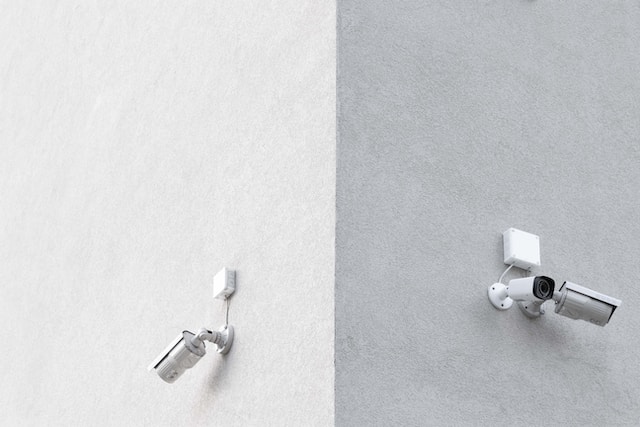
If you’re thinking about adding a security system to your home, one of the main things to consider is its installation. Are you going to take the DIY route and install the security system on your own, or are you going to get the system installed by a professional security company? In this blog, we take a look at the two methods of installation, their pro’s and con’s and which option we believe is best!
Before we look at the two installation options in closer detail, here is a quick overview of why each option could be best suited to you.
DIY installation could be the choice for you if:
- You’re a DIY enthusiast and enjoy getting hands-on
- You want a simple system that covers the main areas of your home
- You want to avoid installation fees
- You don’t want strangers in your home
Professional installation may be the choice for you if:
- You’re looking to install a complex security system that covers a large portion of your home
- You have a budget to cover installation costs
- You don’t like doing things yourself and would rather someone else do it
- You don’t mind people being in your home
Installing your own security system
There are many benefits to performing a DIY security installation. First and foremost, it will save you money. Secondly, it’s a great option for homeowners who don’t mind rolling their sleeves up and getting the job done themselves, avoiding the need to work around an installer’s schedule and having a stranger wander around your home when you’re not there. With most DIY security installations, you own the equipment from the get-go. This can sometimes mean a larger up-front cost, but it also means that it’s far easier to take your system with you if and when you move property. This is a particularly useful option for people who are renting their home and do not own it.
Another great positive about DIY security installations is that it’s not always as hard as you think. Even though professional installation requires ‘no work’ on your part, the ‘work’ required for DIY installations is minimal. Self-install alarms are often completely wireless, so all that is required is that you’re somewhat handy with tools. However, DIY security installation isn’t perfect for every situation. In most cases, you’re not going to be a security expert, so you may struggle to understand if you’re setting up your equipment correctly. Even though you can live-chat or contact support over the phone, they’re not going to be able to see inside of your home to offer specific recommendations that a professional installer could make whilst being in your home. DIY security installation comes with the risks of improper equipment placement and the chance of missing a security vulnerability that a professional could easily catch.
Professional security installation
The biggest and best part of a professional security system installation is that you get back to sit back and relax whilst all of the hard work gets done for you. You’ll never have to worry about whether or not you did it wrong or spend countless hours listening to automated directions or reading confusing instructions. You’ll have to make time to be home during the installation, but you can get other things done during this time and leave the work down to the professionals.
An additional reason to choose a professional installation is that you benefit from a professional’s experience and knowledge. With DIY installation, there’s always a chance that you may miss something, such as placing a motion sensor too high or not noticing an obvious security vulnerability. A lack of expertise could cost you far more time and effort in the future if it was to ever lead to a break-in. An installer can ensure your equipment is properly set up, guide you through the ins and outs of your system and make suggestions for how best to secure your home. Despite the numerous perks that come with professional installation, it’s not without a few drawbacks.
If a technician is required to come out and install your system, it’s going to cost you. It can also be a slight inconvenience if you need to schedule a time to be home when an installer is available. You’ll no doubt save time by not having to install your home security system, but you’ll still have to be home when the technician arrives. If you’re busy, going through this may cause a headache.
Which one is right for you?
Of course, when it comes to choosing an installation method for your security system, the choice is completely up to you. However, from our experience, we believe that a professional installation should always the way to go. Ultimately, the reason for getting a security system in the first place is because you want your property and possessions to become more secure, reducing the chances of a break-in. With a professional installation, the level of security is increased. There are no risks of your system failing or a security vulnerability being missed when a professional technician is present.
Here at IDS Security Systems, we provide a range of quality security systems suited for a variety of properties, serving any requirement. Whether you’re looking for a simple intruder alarm, CCTV cameras or access control, our team of experienced professionals are able to assist with the best possible solution for you, which includes expert installation, meaning you won't have to install your own! To find out more, get in touch with a member of our team today by clicking below.
Contact Us >